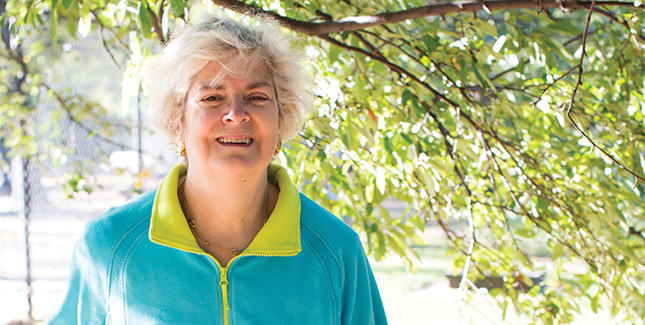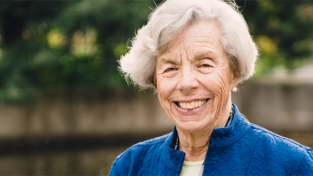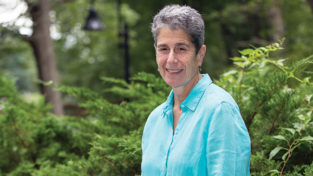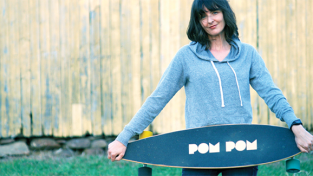10 Minutes With: Susie Kreiner Hochenberg ’68
Kidney Donor
Susie Kreiner Hochenberg ’68 dedicated twenty-eight years to teaching students in New York City public high schools. When she retired, she turned her attention to volunteering at the American Museum of Natural History (AMNH). Two years ago Hochenberg embraced the opportunity to make a difference in a significant new way—by donating one of her kidneys. It didn’t just save a life; it saved the life of her very own husband.
On how she became a kidney donor:
In 2012 William, my husband of more than thirty years, became very ill. He was diagnosed with end-stage renal disease and immediately went on dialysis for nineteen months until he was healthy enough to receive a new kidney. Thanks to caregivers at Mount Sinai Hospital, William regained his strength. As luck would have it, I was a match to my husband and quickly realized what a gift it would be to donate my kidney to him. In August 2013 we were in adjoining operating rooms. The rest is history.
On giving back:
It is estimated that there are 110,000 Americans awaiting a new kidney. Nineteen die each day. I am very glad to tell people how relatively easy it is to donate a kidney and save a life. A healthy person needs only one kidney to live a perfectly normal life. I don’t take any medicines or have any food restrictions. This year I decided the least I could do would be to become a volunteer at Mount Sinai Hospital’s Recanati/Miller Transplantation Institute. The RMTI reaches out to the public letting people know how important it is to consider being a donor, whether it is a kidney, liver (which grows back in the body), or a colon.
I am living a great life with my one kidney. My husband got his life back with my other kidney.
Susie Kreiner Hochenberg ’68
On life after kidney donation:
A day does not go by that I don’t thank my lucky stars for the care my husband and I received at Mount Sinai Hospital. William is back at work practicing family law, and I returned to volunteering, including at the American Museum of Natural History. Tens of thousands of public school students from the tri-state area come to the museum each year, studying everything from dinosaurs to live butterflies and space exploration. There are endless learning activities, and I have made lifelong friends who work and volunteer at the AMNH.
This article appeared in the winter 2016 issue of the Alumnae Quarterly.
January 15, 2016











Dear Susie,
What a wonderful story, to which I can certainly relate. My husband’s diabetes, after 10 years, caused renal failure. After undergoing the battery of tests which I’m sure you remember, he was added to the University of Pittsburgh Medical Center’s Kidney Transplant List and as soon as his fistula formed, began dialysis. He has no living immediate family, and I have a rare kidney disorder. How I wished that I could have given a kidney to him because the wait seems endless. We were told to expect 2-3 years, and he’s now entering the third year. This impacts both of us because we need to be here when the call comes. I count my blessings that we live in Pittsburgh, a city renowned for its fine medical facilities.
I wish you and your husband the very best. The gift of life is especially precious if it comes from a loving spouse, but in Dave’s case, a stranger will also make a priceless gift – also a gift of love.
Best wishes,
Susan Swager Becraft 1965
As an MHC Alum ’12 and Liver Transplant Recipient, thank you for what you did and for bringing awareness to the Gift of Life. Much MHC Love to you and your family!
So great, Susie! My friend just sent me this article because I also donated my kidney in 2013 in nyc! It was a year and a half after I graduated MHC and I recall the Be An Agent of Change campaign. I also remember how difficult the years after graduation were, particularly professionally. I was unable to obtain meaningful work that I could survive on and when a dear friend became ill I thought well, okay I will be an agent of change and do something meaningful finally. It was the best decision I’ve ever made and my professional goals worked out after all! 🙂